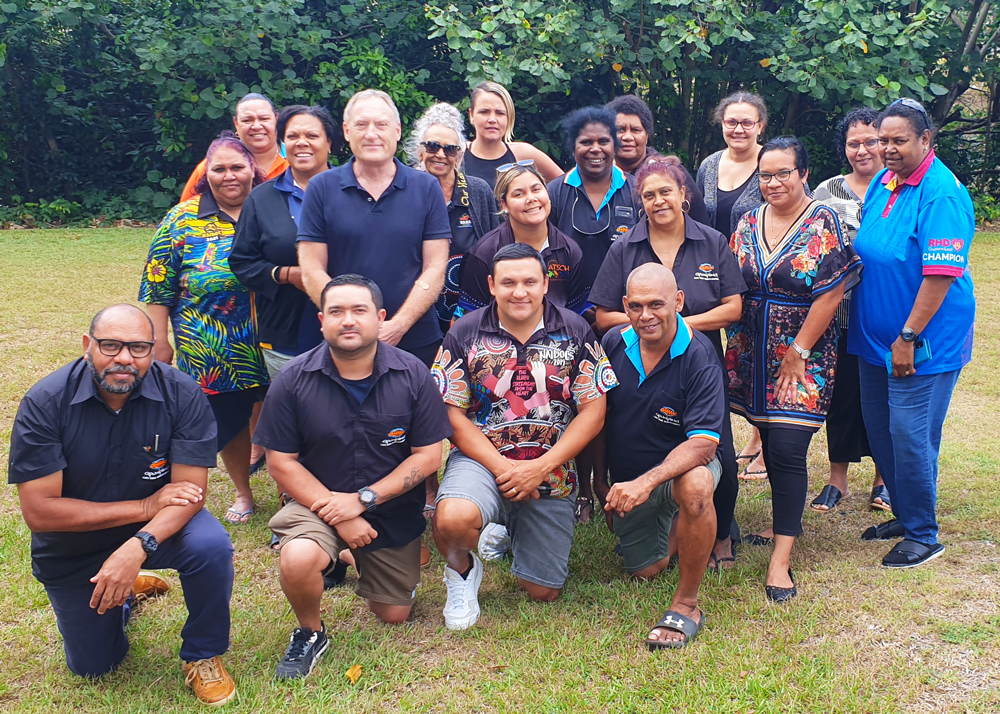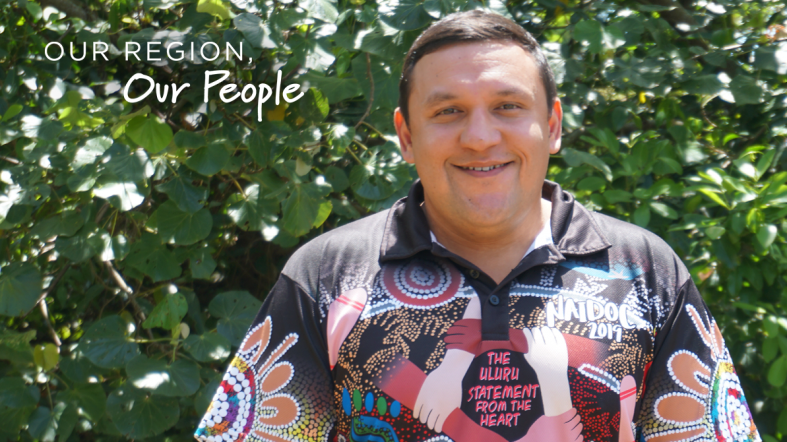Daniel joined 16 other Aboriginal Health Service workers from North Queensland to complete the Diploma of Indigenous Health-Centred Leadership and Management, a collaborative program funded by Health Workforce Queensland (HWQ), developed by registered training organisation Health Industry Training (HIT), and supported by Northern Queensland Primary Health Network (NQPHN) through promotion coordination, expressions of interest, and approvals for delivery of training.
The program was designed to assist in the development of strong, emotionally intelligent leadership and management within Aboriginal Health Services, which is crucial to improving health outcomes of Aboriginal and Torres Strait Islander communities.
The program also equipped students to deal with Indigenous health workplace challenges and provided them with the skills to apply a strategic approach to Indigenous health, business and project planning and management, stakeholder engagement, workplace relationships, and continuous improvement.
The training was delivered by a combination of online and in-person training retreats, and used a model that allowed for peer learning, where students brought their own ‘real work’ examples and challenges to the group to ensure genuine workplace relevance for extensive analysis and discussion.
Daniel said that he signed up to the program to gain new skills, grow his confidence, and to increase his chances for career progression in the future.
“I hoped the training would provide me with a broader range of processes and tools to use as a leader to become more effective in managing my current program,” said Daniel.
“I also see the formal qualification opening up my eligibility for career progression opportunities both internal and external to my organisation.
“Not only will the program help me to build and lead my team more effectively, I feel the new skills I have learnt have helped to boost my confidence in interacting with my executive teams and feel that I can give quality input to meetings with my organisation’s executive management teams”.
Other program participants included staff from a variety of organisations in the Mackay, Townsville, Cairns, and Cape and Torres regions, including Townsville Aboriginal and Islander Health Services (TAIHS), Aboriginal and Torres Strait Islander Community Health Services (ATSICHS) Mackay, Northern Australia Primary Health Ltd (NAPHL), Apunipima, and Mulungu Aboriginal Corporation Primary Health Care Service.
Like Daniel, many of the participants registered for the course to improve their leadership and management skills and described the retreat style of delivery to be conducive to learning and practical in developing skills, knowledge, and acquiring practical tools for the workplace, and found the overall course inspiring and confidence-building. The local delivery of the program minimised disruptions and costs to service providers.
“Hearing the shared experiences of other participants was very helpful and provided and it provided a great opportunity to meet other aspiring Indigenous leaders, which was a huge support throughout the development journey,” Daniel said.
“I plan to go back to my workplace and use some of the things I learnt straight away.
“I strongly recommend participating in the training to anyone who would like to be a more affective team member or who aspires to lead or manage people within the health or wellbeing sector.”
The outcomes of this training will contribute to the development and sustainability of leadership roles in Indigenous health organisations, helping Aboriginal and Torres Strait Islander people in North Queensland live happier, healthier, and longer lives.




